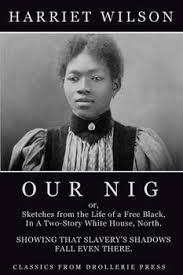On September 5, 1899, J. Ross was granted U.S. Patent No. 632,539 for a Bailing Press. This device was an important innovation in the field of machinery used to compact and bale materials, which was especially significant in industries like agriculture, recycling, and waste management. The patent likely involved a method or apparatus for compressing and packaging materials such as cotton, hay, or other bulk goods into compact bales, making them easier to transport and store.
Leopold Sedar Senghor, a prominent poet and politician, was elected as the first President of Senegal on September 5, 1960. He played a key role in the independence movement of Senegal and was an important figure in African literature and politics. Senghor’s presidency marked the beginning of Senegal’s political independence from France. He was also a key figure in the development of the philosophy of Negritude, which celebrated African culture, history, and identity.
On this date in 1916, Novelist Frank Garvin Yerby, winner of the O. Henry short story award winner, born on this date. He was the first African American to write a best-selling novel and to have a book purchased by a Hollywood studio for a film adaptation. During his career, Frank wrote thirty-three novels and sold more than fifty-five million hardback and paperback books worldwide. Yerby’s first literary success came in 1944, when he received the O. Henry Memorial Award for his short story “Health Card.” Yerby also went on to write, “The Foxes of Harrow,” which focuses on the racial inequities faced by an African American soldier and his wife.
George Washington Murray, born near Rembert, South Carolina, on September 22, 1853, was a prominent African American figure in the late 19th century. He served two non-consecutive terms in the U.S. House of Representatives, representing South Carolina’s 7th Congressional District. In 1892, he was elected to Congress, defeating the incumbent, Thomas E. Miller. Murray was known for his advocacy for African American voting rights and his contributions as an inventor, holding several patents for agricultural tools. While he was elected in 1892, his service was interrupted due to election disputes and voter suppression tactics that targeted African American voters. He was re-elected in 1896 after successfully contesting the election results. Murray’s tenure in Congress was marked by his efforts to address the challenges faced by African Americans during the Reconstruction era.

Our Nig: Or, Sketches from the Life of a Free Black was published on September 5, 1859. Written by Harriet E. Wilson, it is considered the first novel published by an African American woman. The book is an autobiographical narrative that details the life of a young Black woman, Frado, living in the North during a time when racial discrimination and slavery were still deeply entrenched in American society. The novel is a significant contribution to American literature, shedding light on the complexities of race, class, and gender. It was lost for years until reprinted with a critical essay by African American scholar Henry Louis Gates, Jr. in 1983.
John W. Cromwell was born on September 5, 1846. He was an important figure in American history, particularly known for his work as a writer, educator, and civil rights activist. Cromwell was one of the first African Americans to attend Harvard University, and he was involved in various efforts to advance civil rights and social justice throughout his life.
on September 5, 1804, Absalom Jones was ordained as the first African American priest in the Episcopal Church. This was a significant moment in American religious history, as it marked a major step towards racial equality within the church and was a reflection of the broader push for African American rights and recognition in the early 19th century. Absalom Jones was also a prominent abolitionist and social leader, known for founding the African Episcopal Church of St. Thomas in Philadelphia.
© 2025 KnowThyHistory.com. Know Thy History